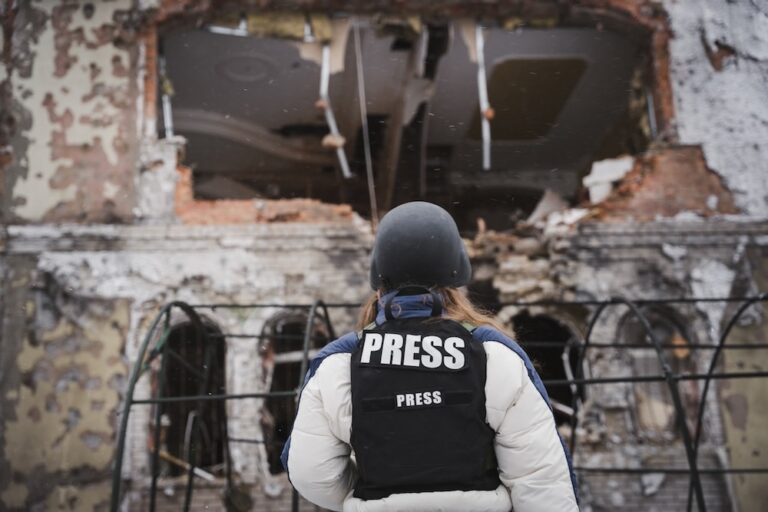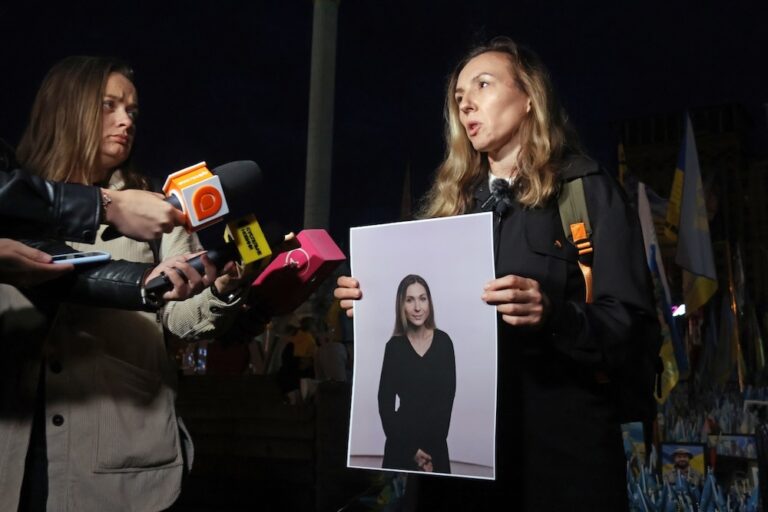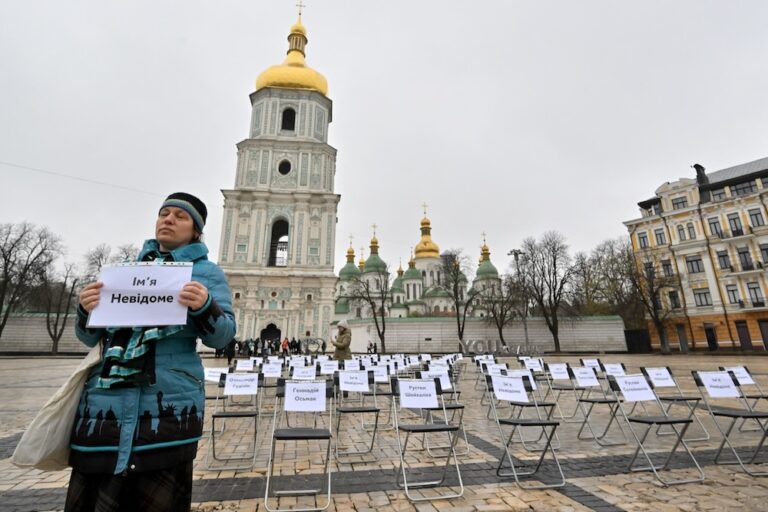(RSF/IFEX) – In an open letter to President Leonid Kuchma, RSF urged a full inquiry into the Ministry of the Interior, after the anticipated resignation of Minister Youri Kravtchenko takes place, in order to uncover who ordered the surveillance, disappearance and killing of Georgiy Gongadze. In November 2000, the journalist’s headless body was found near […]
(RSF/IFEX) – In an open letter to President Leonid Kuchma, RSF urged a full inquiry into the Ministry of the Interior, after the anticipated resignation of Minister Youri Kravtchenko takes place, in order to uncover who ordered the surveillance, disappearance and killing of Georgiy Gongadze. In November 2000, the journalist’s headless body was found near Kiev, the capital city.
“You have just admitted that there were serious lapses in the inquiry into the murder of Gongadze and that aspects of this terrible affair remain unclear,” said RSF Secretary General Robert Ménard. “It is your responsibility to fully accept the resulting consequences and make the necessary decisions. The expected resignation of Interior Minister Yuri Kravtchenko, which follows Head of Secret Service Leonid Derkach’s resignation, should permit a thorough investigation into the very heart of the Ukraine administration.”
Ménard urged the president “to authorise international experts to conduct another autopsy examination of the body and all necessary examinations to shed light on the circumstances of the murder. Reporters sans frontières proposes to send a medico-legal expert to participate in the new examination. We have also called on the FBI to resume its work and to conduct a new autopsy.”
There is no doubt that every possible effort was made to prevent the body’s identification during the first few weeks after it was discovered. The fact that an independent DNA test done in Munich took place on a piece of skin that apparently did not belong to Gongadze’s corpse only reinforces RSF’s previous statement to that effect. RSF’s current appeal comes a day after the results of a DNA test carried out in Munich were misinterpreted in some quarters as proving the body was not Gongadze’s, said RSF. The orgnisation recalled that in early November 2000, when authorities learned that the body discovered in Tarachtcha could be the journalist’s, the corpse was left for thirteen days in a un-refrigerated local morgue. Furthermore, the remains were secretly transported to Kiev without the knowledge of the head of the local morgue, after advisors allegedly brought forth evidence that allowed the journalist to be identified. Gongadze’s wife was not even allowed to see the body until 10 December, more than a month after it was discovered.
Also, despite the fact that Assistant Minister of the Interior Mykola Djiga stated on 16 November that the body found in Tarachtcha had been underground for almost two years, and therefore could not be the journalist’s, various DNA analyses conducted in Ukraine and Russia, due to public pressure, confirmed that the corpse was indeed Gongadze’s.
RSF also pointed out that there has been no serious investigation into the claims made by Gongadze that in the weeks prior to his disappearance, he was followed and intimidated by officials from the Ministry of the Interior. The state prosecutor announced, in the provisional conclusions of the investigation that were presented to parliament on 11 January 2001, that the minister denied any responsibility. Since some facts have already been conclusively established, this denial of the truth is no longer credible.
The circumstances surrounding the assassination must be established with certainty and those responsible must be identified, despite the systematic obstruction by some administrative and judicial authorities. RSF called for all necessary measures to be put in place so that a real inquest can be held and the anticipated results can be revealed to the Ukraine and the rest of the world.


